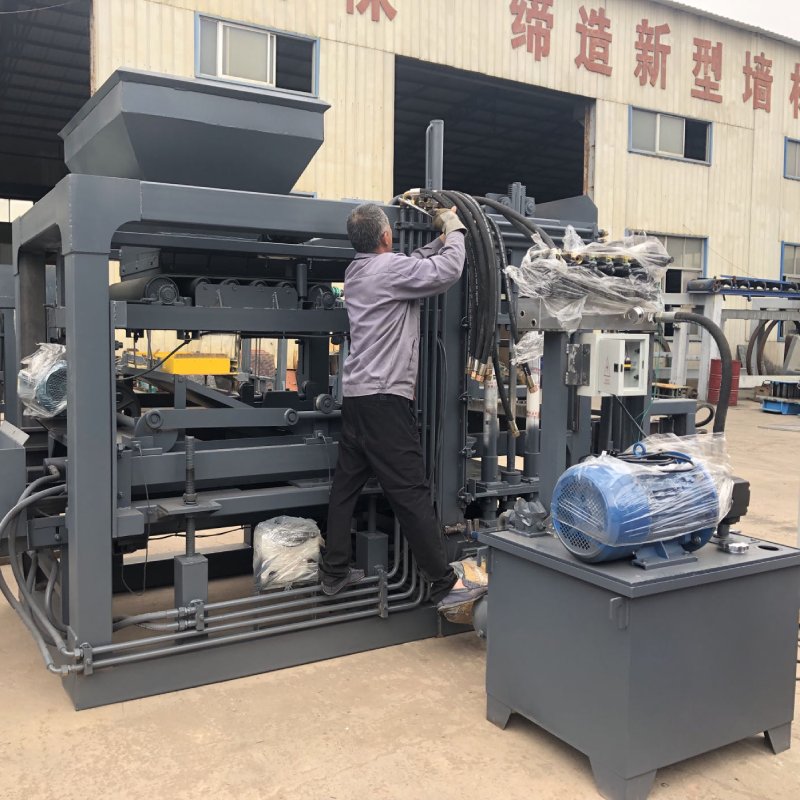
Image source Aiwei Block Machine
Top Block Brick Making Manufacturers: Innovations and Trends in the Industry
Introduction
The world of construction has witnessed significant advancements in recent years, driven by innovations in materials, technologies, and manufacturing processes. One critical aspect of modern construction is the production of high-quality bricks and blocks, which form the foundation of countless structures. In this article, we will explore the top block brick making manufacturers and delve into the innovations and trends shaping the industry.
The Importance of Quality Bricks and Blocks
Before we delve into the innovations and trends, let’s understand why high-quality bricks and blocks are vital. Bricks and blocks serve as the fundamental building blocks for most construction projects, including residential, commercial, and industrial structures. Their durability, strength, and resistance to environmental factors are crucial for ensuring the longevity and safety of buildings.
The Top Block Brick Making Manufacturers
- Besser CompanyBesser Company, headquartered in the United States, is a global leader in providing innovative solutions for the concrete products industry. With a history dating back to 1904, Besser has consistently pushed the boundaries of block and brick making technology. Their comprehensive range of products includes block machines, molds, and automation systems designed to enhance production efficiency and product quality.
- Rekers GmbH Maschinen- und AnlagenbauRekers, based in Germany, is renowned for its expertise in designing and manufacturing block making machinery. They have a strong global presence and are known for producing high-quality equipment that caters to various block and brick production needs. Rekers’ commitment to innovation has led to the development of energy-efficient and sustainable manufacturing solutions.
- Masa GmbHMasa, a German company, has been a pioneer in the block and brick making industry for over a century. Their advanced machinery and automation systems are known for their precision and reliability. Masa continues to invest in research and development to optimize production processes and reduce environmental impact.
- Hess GroupThe Hess Group, based in Germany, specializes in providing turnkey solutions for concrete product manufacturing. Their offerings include block machines, batching plants, and handling equipment. Hess Group is dedicated to sustainability and is actively involved in developing environmentally friendly technologies for the industry.
- QuadraQuadra, headquartered in France, is a prominent player in the concrete product manufacturing industry. They offer a wide range of block and brick making machinery known for its versatility and quality. Quadra places a strong emphasis on innovation, particularly in automation and digital solutions.
Innovations in Block and Brick Making
Now, let’s delve into the innovative technologies and practices that these top manufacturers are incorporating into the block and brick making industry.
1. Automation and Robotics
Automation is one of the most significant trends in block and brick manufacturing. Leading manufacturers are integrating robotics and automation systems to improve production efficiency, reduce labor costs, and enhance product consistency. These systems can handle tasks such as material handling, molding, curing, and quality control with precision.
Besser, for instance, offers advanced automation solutions that allow real-time monitoring and adjustment of production processes. This not only ensures product quality but also minimizes waste and resource consumption.
2. Sustainable Practices
Sustainability is a driving force behind many innovations in the industry. Manufacturers are increasingly focused on reducing the carbon footprint of block and brick production. This involves using eco-friendly materials, optimizing energy consumption, and minimizing waste.
Hess Group, for example, has developed energy-efficient block machines that consume less power while maintaining high production rates. Additionally, they emphasize the use of recycled materials and efficient curing processes to reduce environmental impact.
3. Digitalization and IoT Integration
The digital revolution has also touched the block and brick manufacturing sector. IoT (Internet of Things) technology is being used to connect machines and gather real-time data. This data is then analyzed to optimize production, predict maintenance needs, and improve overall efficiency.
Quadra has integrated IoT solutions into their machinery, allowing operators to monitor performance remotely and receive alerts in case of issues. This proactive approach reduces downtime and increases productivity.
4. Customization and Product Diversification
Another trend in the industry is the ability to produce a wide range of customized products. Manufacturers are designing machinery that can create different block and brick sizes, shapes, and surface finishes. This flexibility allows builders and architects to realize unique design concepts.
Masa, for instance, offers machines that can produce various types of concrete products, including standard bricks, pavers, and even special architectural elements. This adaptability caters to the evolving demands of the construction industry.
5. Sustainable Raw Materials
Innovations are not limited to machinery alone. Manufacturers are also exploring sustainable raw materials for block and brick production. This includes using alternative cementitious materials, recycled aggregates, and even novel bio-based binders.
Besser Company is at the forefront of research into sustainable materials for block making. They are involved in projects that explore the use of alternative cementitious binders, which have the potential to significantly reduce the carbon footprint of concrete products.
Conclusion
The block and brick making industry is undergoing a transformative phase, driven by innovations and a commitment to sustainability. Leading manufacturers such as Besser Company, Rekers GmbH, Masa GmbH, Hess Group, and Quadra are at the forefront of these developments. From automation and sustainability to digitalization and customized products, these companies are shaping the future of construction materials.
As the demand for sustainable and high-quality building materials continues to grow, we can expect even more groundbreaking innovations from these manufacturers. The construction industry, in turn, will benefit from increased efficiency, reduced environmental impact, and enhanced design possibilities, ultimately leading to safer and more resilient structures.
